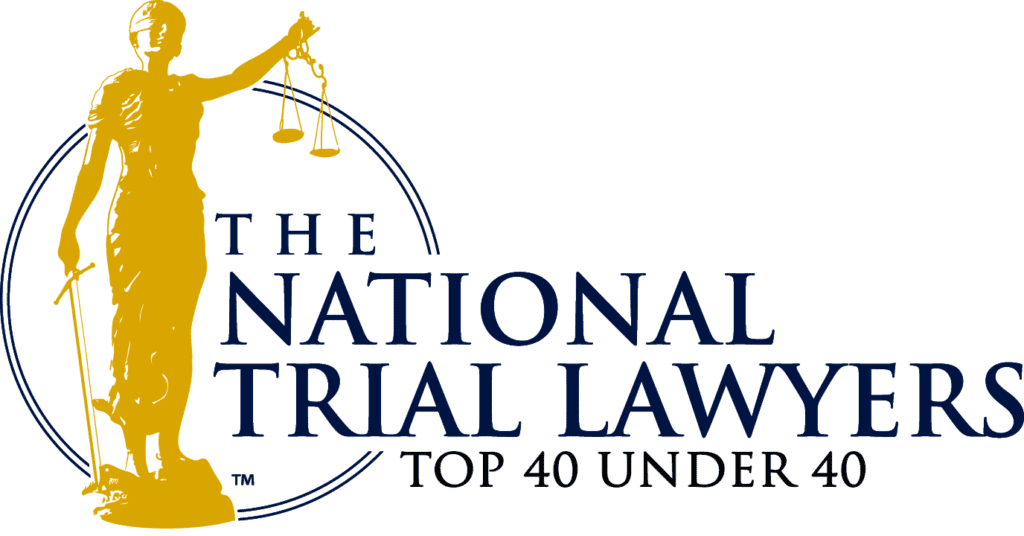The party ultimately responsible for paying for your losses is the one that is considered liable.
Liability can be a complex personal injury law. That’s why it’s crucial to work with one of the best personal injury attorneys in your area who can help you find all the liable parties and hold them accountable.
What Is Liability?
Liability is a legal concept that indicates a person or company is responsible for something. In personal injury cases, “something” is a financial obligation to pay for the damages a victim has incurred due to negligence or wrongful actions.
To determine who is liable, you must first know who was negligent. Negligence is another legal theory that states a party had a legal duty and failed to uphold that duty. When the failure of that duty results in injuries or damages to another person, the negligent party is liable for the losses.

For example, a driver has a legal duty to stop at red lights. If a driver fails to stop at a red traffic light, they have failed to uphold that legal duty, and they are negligent. If that negligence results in a car accident and someone is injured, the negligent driver is responsible for the victim’s losses.
In many cases, negligent people have an insurance company that is ultimately liable for the financial obligation of paying for damages in a personal injury case. If the insurance company refuses to pay for the personal injury claim or the victim has damages in excess of the policy limit. The remaining personal injury liability is transferred back to the negligent person.
Liability for negligence is sometimes difficult to understand. The at-fault party may not be financially liable for damages. Their insurance company may be the liable party. If there is no insurance coverage, then the at-fault party is liable.
Liability in Common Accidents
Determining all of the possible liable parties is essential. If you fail to name a party who may be liable in a personal injury lawsuit, you may forfeit your right to the maximum amount of compensation possible. Remember, several possible parties can be liable in personal injury accidents.
Car Accident Liability
Common liable parties in motor vehicle accidents, including car crashes, truck wrecks, motorcycle accidents, rideshare accidents, and others include:
- Vehicle insurance company
- Vehicle driver
- Employer of the driver
- Mechanic
- Trucking company
- Rideshare company
- Defective parts manufacturer
Premises Liability
Parties that may be liable in premises claims, such as slip and fall accidents, dog bites, and others may include:
- Homeowners’ insurance
- Business insurance
- Property owner
- Manager
- Maintenance technician
- Janitor
- Dog owner
- Doggie daycare or boarding facility
- Landlord
- Tenant
Establishing liability is important, and your attorney can help determine exactly which parties should be named in a personal injury lawsuit to ensure you get all the compensation you deserve.
Liability vs. Fault: What’s the Difference?
Any party that acts negligently or wrongfully may be at fault. For example, a driver who follows too closely and causes a rear-end accident is at-fault. A dog owner who allows their animal to run off-leash at a park is at-fault if the dog bites a jogger. Fault simply indicates that a person failed to take reasonable action.
Liability indicates that a party is financially responsible for the resulting damages. An insurance company is financially liable for personal injury damages in most cases. Car insurance companies cover damages after a wreck, and homeowners’ insurance typically covers damages after a dog bite.
How to Establish Liability
You might know that the financial liability lies with an insurance company, but you’ll have to file a successful claim. Insurance companies often try to deny liability or delay claims in an attempt to drag things out until your claim is no longer valid.
The first step in establishing liability is to determine fault. The at-fault party is the person or company that caused your injuries. Then, you need to find out if they have insurance to cover accidents or injuries like the one you were involved in.

Once you know the insurance company, you will need to file a claim. They may challenge liability. Your personal injury lawyer will have to review the at-fault party’s insurance policy to ensure the insurance covers accidents like yours.
Insurance companies do not always comply with requests. It is typically necessary to file a personal injury lawsuit and use the discovery process to obtain necessary evidence like the full insurance policy.
The discovery process is when both parties make requests and send one another information that may or may not benefit your claim.
The discovery process is an essential process in establishing liability in a personal injury claim.
Common Liability Issues & Complications
The most common issue with personal injury liability is proving fault and establishing liability. For instance, an insurance company may suggest their policyholder is not 100% to blame for the accident or that the accident only aggravated a pre-existing condition, therefore reducing what they may owe you.
Another common issue with liability is compelling the insurance company to cover all your damages. You are entitled to recover all your losses, including medical expenses, lost wages, pain and suffering, and all other damages you have incurred.
The insurance company will likely try to deny liability so that you don’t have to pay you anything, or they will try to say you are partially liable, so they don’t have to pay you as much. Make sure you work with an attorney who will not let them take advantage of you.
Modified Comparative Negligence in Georgia
When the insurance company tries to deny liability or put partial blame on you, they may cite Georgia’s liability law called “modified comparative negligence.” Under modified comparative negligence, you can still recover damages for your injuries even if you were partially at fault.
However, you must not be more at fault than the other party, and the amount of money you can recover is decreased by the percentage you were at fault.
For example, if you were 49% at fault for an accident, you can still collect 51% of your incurred damages. If your damages totaled $100,000, then you would be eligible to receive $51,000 from the financially liable party.
Liability in Georgia FAQs
1. What Is Strict Liability?
There are certain situations in which a party may be held “strictly liable” for certain actions or products that cause harm, even if they didn’t act negligently. Strict liability is typically applied to products liability or hazardous activities.
For example, suppose a car manufacturer sells a faulty brake pedal that wasn’t properly tested according to government regulations. In that case, they may be held strictly liable for accidents resulting from their defective product.
2. What Is Premises Liability?
Premises liability refers to accidents on someone else’s property due to unsafe or dangerous conditions. Landowners or managers are typically required to maintain safe premises for visitors legally on their property. Failure to do that makes them legally liable for injuries due to accidents.
For example, if a landlord fails to fix a broken stairway in an apartment complex and a tenant falls through a step, resulting in injuries, the landlord is likely liable for that accident.
3. How Do I Determine Who’s Liable?
Sometimes fault and liability are clear cut. But things can get complicated quickly after a severe accident, and multiple parties can share liability. Since your financial recovery may depend on naming all the parties that may be liable, your best option is to consult an experienced lawyer.
An attorney will have the knowledge and resources to conduct a thorough investigation and ensure all the appropriate parties are identified and named in your claim and lawsuit.
Get Help With Your Injury Case

Liability is a complex legal concept that requires an understanding of Georgia liability laws to prove. It’s essential to work with lawyers with extensive experience against large insurance companies who may try to diminish liability and blame you. Get help from The Champion Firm, Personal Injury Attorneys, P.C.
Schedule your free, no-risk, no-obligation consultation at 404-596-8044 or complete our contact form. There’s no fee unless you win.